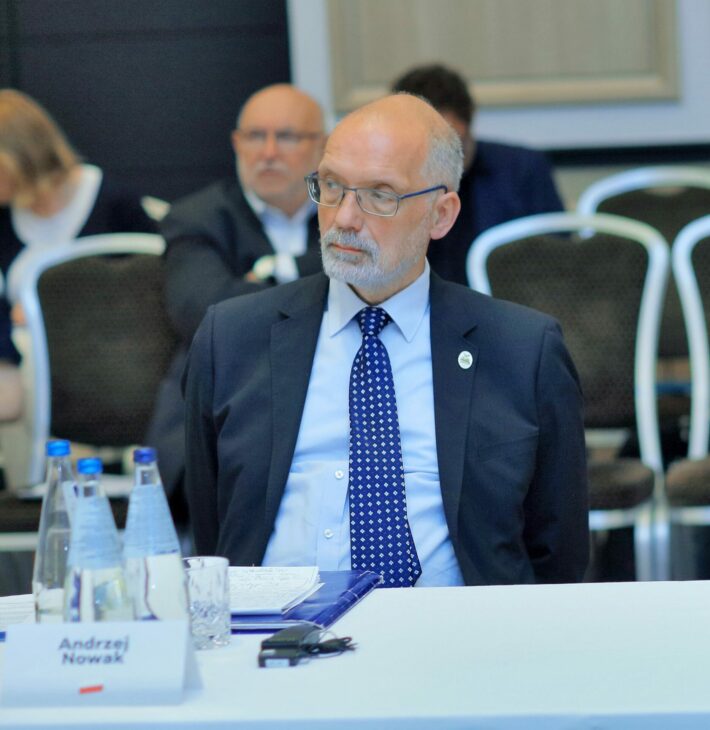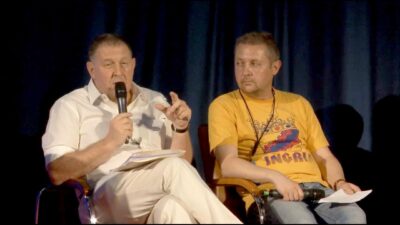A well-known Polish historian explained the dangers of Putin's understanding of Central Europe

To elaborate on the place of Central Europe in the Kremlin’s ideology, I think one should begin with a definition of basic concepts: what Central Europe is, what the Kremlin is, and what its ideology is. From the point of view of the Kremlin, that is, Putin and his administration, which is one of the main, though not the only, center of ideology generation in Russia, the center of Europe is Germany. Well, maybe Germany and also France. This is how Putin sees Europe, who is trying to implement his imperial policy – in coordination with this center of Europe. And we, the inhabitants of that part of Europe which belonged to the Soviet camp, put a slightly different meaning in the concept of Central Europe. For us, this is the group of countries that was in the shadow of the Soviet empire and included territories from Estonia, and maybe even from Finland, where for a century, after all, ruled the Russian Empire. So from Finland – through Estonia, Latvia, Lithuania, Poland, etc. – down to Bulgaria. And here I want to ask an important question: is Ukraine and Belarus part of this understanding of Central Europe? How do Putin and his administration answer this question?
I agree with Garry Kasparov, founder of the Free Russia Forum, who believes that the problem is not with Putin alone, that it is deeper. The problem is the modern elite which rules Russia. Besides Vladimir Putin himself and his administration, we can distinguish two other important centers of creation of the Russian ideology. The first is what could be called the military-industrial complex. This is what represents the tradition of the military lobby in Russia. There is the memory of World War II as the Great Patriotic War, and the memory of Russia as a country that always defends itself against external aggressors and only liberates all peoples around. Two ideological moments that grow precisely on military soil. And the second center of creation of myths and ideologemes is the Orthodox circles. Their ideology clearly defines the boundary between the Orthodox world and the “hostile Latin world” – the West. The West, according to their instructions, decays itself and corrupts others, and therefore the whole world must be freed from the “filth” – to introduce the true faith, that is, Orthodoxy. Associated with this, of course, is the idea of Moscow as the Third Rome.
If we want to understand how Central Europe is seen from the towers of the Kremlin, let us remember what Putin himself told us. As far as I know, the first time he revealed his views was at a forum in Hamburg – in 1994. It was a German-Russian forum, where he spoke as the deputy mayor of St. Petersburg. So, he was outraged by the wording that had been uttered shortly before the event. That Russia is a country that has post-imperial complexes. He proved the opposite: “Russia was never an empire, we are not an empire! Russians as a people are constantly being insulted by everyone!” And it is the Russians – he said then – who are the main victims of the greatest catastrophe of the twentieth century, which he considers the collapse of the Soviet Union.
But it is not even these passages that I would like to draw your attention to, but to the words of the young Putin, addressed to the organizers of that forum. He said the following: “The most important thing is that our partners (i.e. the Germans or the Germans and the French. – A.N.) recognize the legitimacy of the interests of the Russian state and the Russian people. This sounds banal – after all, everyone wants the interests of their country and their people to be protected and taken into account. But Putin put a different, special meaning into these words. He clearly meant that the Ukrainians and the Belarusians are also Russian people. And Ukraine, they should be ours, and Belarus.
This situation does not seem to affect Poland directly, at least because Poland is further away. And, imagine, even now there are idiots in Poland, who say: “The Russians want Ukraine and Belarus – let them have them!”. There are few such idiots, but they do exist – and sometimes they are not shy to speak out.
And what seems particularly dangerous to me as a citizen of Poland is that such a viewpoint is echoed by potential partners in the West. Russia itself is not dangerous for Poland. But it becomes dangerous when it finds partners in the West. And if the war drags on and Russia is able to convince some of the Western elites that it is necessary to share influence – on the territories that are a bit wild, a bit disturbing, you find them difficult to control, we will help… I don’t want to imagine what will happen in such a case.
This is exactly what Putin’s propaganda is working for – trying to present Lithuania, Latvia, Estonia, and Ukraine to the West as countries dangerous to a stable world order. As centers of small nationalisms – as a rule, anti-Semitic, fascist, which were the colaboration of Hitler’s Germany. Moreover, Germany as the center of Nazism is never considered by Putin. For him, Germany is a victim of Nazism. But the main “Nazi forces” he has are Lithuania, Latvia, Poland and Ukraine, and therefore, let us, dear Germany, France and perhaps even the United States, control them together. This is the so-called game of realism, the essence of which is simple: to agree and divide. That is, to tear off this piece of Poland and give it to Russia, and to cut it off to Germany. Such a view of our part of Europe seems to me particularly dangerous. Like all the talk along the lines of “he won’t go further than Ukraine”…
On materials from the roundtable “Central Europe in Kremlin’s Ideology” – specially for the Free Russia Institute




